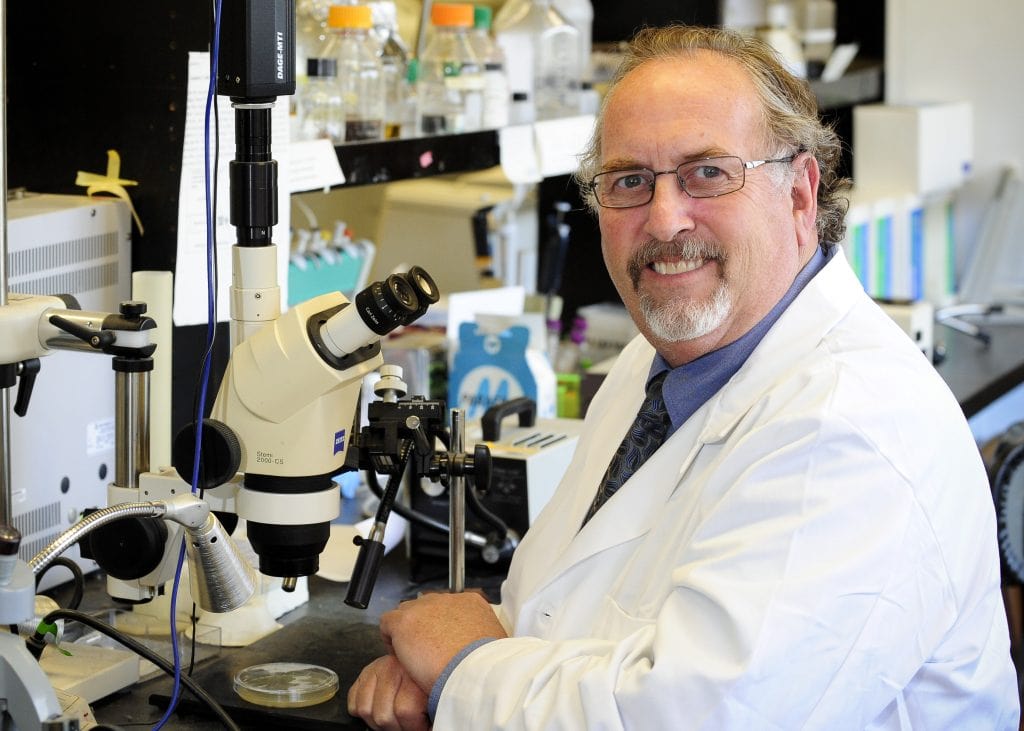Professor Daryl Davies was recently awarded a five-year $1.25 million grant from the National Institute on Alcohol Abuse and Alcoholism (NIAAA), one of the 27 institutes and centers that comprise the National Institutes of Health (NIH), for his research that could lead to new drugs to prevent or treat alcohol use disorder.
Alcoholism and alcohol abuse cause approximately 100,000 deaths each year, costing the nation more than $240 billion annually, according to the Centers for Disease Control and Prevention (CDC). “Alcohol use disorder has a staggering socio-economic impact, yet current therapeutic strategies to treat this disease are largely inadequate, with less than 10% of all patients suffering from an alcohol use disorder (AUD) receiving any therapeutic treatment,” says Dr. Davies, whose research project is entitled “Regulation of Alcohol Intake by Purinergic P2X4 Receptors.”
With support from NIAAA, the Davies laboratory has assembled a multidisciplinary team of investigators who will use state-of-the-art genetic, molecular, chemical and behavioral techniques to translate laboratory findings into opportunities to discover and develop novel therapeutics for human use.
As part of this effort, Dr. Davies recently identified P2X4 receptors as a novel target for the development of drugs to prevent or treat alcohol use disorder (AUD). To this end, his group is currently undertaking efforts to support a drug discovery program using ivermectin (IVM) as the lead compound for the development of novel P2X4 positive allosteric modulators. The long term translational aspects of these investigations are the development of therapeutic strategies for the prevention and/or treatment of AUD.
As a major step forward in this process, Dr. Davies’ group has recently reported that Moxidectin (MOX), a drug related to IVM, has lower neurotoxicity potential and improved margin of safety compared to IVM. In that MOX is currently becoming approved for human use for other indications (anti-parasitic), Dr. Davies’ group has begun setting the stage for repurposing MOX as a novel pharmacotherapy for AUD and hopes to begin human testing for this purpose in the near future.
A professor in the Titus Family Department of Clinical Pharmacy, Dr. Davies has more than 25 years of research experience focused on the roles of ligand-gated ion channels and how ethanol (alcohol) affects these channels, leading to changes in behavioral responses.
Davies is recognized by his peers as a pioneer in the field of alcohol research with a focus on purinergic, P2X4 receptors and their role in the central nervous system’s regulation of alcohol-induced changes in signalling.


